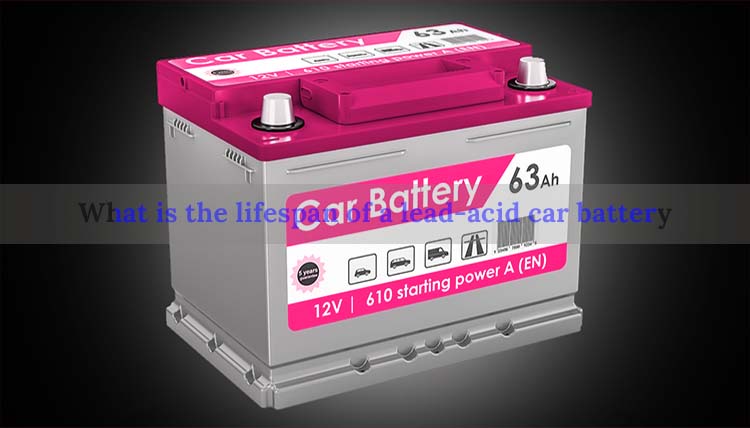Looking to power up your vehicle with the perfect battery? Choosing the right car battery is a crucial decision that can significantly impact your vehicle’s performance and longevity. In this guide, we’ll navigate the intricate world of car batteries, providing insights on understanding your vehicle’s needs, decoding battery types, and offering practical tips for assessing battery life. Empower your journey by making an informed decision that ensures your vehicle runs smoothly, no matter the road ahead.

Understanding Your Vehicle’s Battery Needs
Know Your Vehicle’s Specifications
- Importance of understanding your vehicle’s make and model: To choose the right car battery, start with a comprehensive understanding of your vehicle’s make and model. Different cars have unique energy requirements, and selecting a battery tailored to your vehicle ensures optimal performance. Consult your owner’s manual for precise details, guiding you in choosing a battery that seamlessly integrates with your car’s electrical system.
- Key specifications: Two critical specifications to weigh when selecting a car battery are Cold Cranking Amps (CCA) and group size. CCA indicates the battery’s ability to start the engine in cold temperatures, which is crucial for winter climates. Group size corresponds to the battery’s physical dimensions, ensuring it fits snugly into your vehicle. These specifications, among others, are vital in pinpointing the ideal battery for your specific make and model.
Identifying Your Driving Conditions
- Impact of climate on battery performance: Climate plays a pivotal role in determining a battery’s efficiency. In colder climates, batteries endure more strain, requiring higher CCA. Conversely, in hotter regions, heat can accelerate the chemical reactions within the battery, affecting its overall lifespan. Recognizing the climate in which you predominantly drive empowers you to select a battery capable of withstanding and thriving in specific temperature ranges.
- Driving habits and their influence on battery life: Your driving habits significantly impact your battery’s longevity. Short trips with frequent stops may not allow the battery to recharge fully, potentially leading to premature wear. On the other hand, long highway drives contribute to consistent charging, enhancing battery health. Understanding your driving patterns allows you to choose a battery that aligns with your usage, ensuring reliability and a prolonged lifespan.
Car Battery Types
Lead-Acid Batteries
Lead-acid batteries have been the automotive industry standard for decades. They operate on a basic principle, using lead dioxide and lead plates submerged in sulfuric acid to generate electricity. These batteries are known for their reliability and cost-effectiveness, making them popular for various vehicle applications.
Pros and cons for various vehicle types:
- Pros: Affordable, widely available, and suitable for standard vehicles.
- Cons: Heavier and less efficient than newer technologies. It is not ideal for high-performance or energy-demanding vehicles.
AGM (Absorbent Glass Mat) Batteries
AGM batteries leverage a fiberglass mat to absorb and hold the electrolyte, enhancing efficiency and reducing the risk of spills. This design makes AGM batteries spill-proof, maintenance-free, and more vibration-resistant, offering improved performance and a longer lifespan.
Suitable vehicle applications:
- High-Performance Vehicles: AGM batteries excel in high-performance cars due to their ability to deliver a quick surge of energy.
- Start-Stop Systems: Ideal for vehicles equipped with start-stop technology, as they handle frequent cycling effectively.
Lithium-Ion Batteries
Overview of lightweight and high-performance features: Lithium-ion batteries represent cutting-edge technology in the automotive world. Known for their lightweight construction and high energy density, these batteries provide more power while being significantly lighter than traditional options. This results in improved fuel efficiency and overall vehicle performance.
Considerations for specific vehicle models:
- Hybrid and Electric Vehicles: Lithium-ion batteries are commonly used in hybrid and electric vehicles due to their high energy density and ability to store and deliver electricity efficiently.
- Performance Cars: Suitable for performance-oriented vehicles seeking a balance between power and weight.
Why is it important to choose the right battery for your car?
Selecting the correct battery for your car is crucial for several reasons:
- Optimal Performance: The right battery ensures your vehicle operates at peak performance. Different cars have varied energy requirements, and a compatible battery contributes to efficient starting, smooth running, and overall optimal vehicle functioning.
- Longevity: Choosing a battery that aligns with your vehicle’s specifications enhances its lifespan. An appropriately matched battery is more likely to endure the demands of regular use, providing reliable performance over an extended period.
- Prevention of Issues: The correct battery minimizes the risk of electrical and mechanical issues. Incompatibility can lead to electrical system malfunctions, starting difficulties, and potential damage to the vehicle’s components, which may result in costly repairs.
- Fuel Efficiency: An adequately sized and properly functioning battery improves fuel efficiency. It ensures that the charging system operates optimally, reducing engine strain and enhancing your car’s overall fuel economy.
- Reduced Environmental Impact: The right battery choice can also have positive environmental implications. Some modern batteries, such as lithium-ion types, are more energy-efficient and have a lower environmental impact than traditional lead-acid batteries. This choice aligns with sustainability goals.
- Safety: A well-matched battery is less likely to fail unexpectedly, reducing the risk of being stranded due to a dead battery. This is especially crucial in adverse weather conditions or remote locations where assistance may be unavailable.
- Compatibility with Advanced Features: Modern vehicles have advanced features like start-stop technology and complex electronic systems. Choosing the right battery ensures compatibility with these features, allowing them to function as intended and avoiding potential issues.
- Ease of Maintenance: The right battery choice can simplify maintenance tasks. For instance, maintenance-free or sealed batteries eliminate the need for regular checks and top-ups, providing car owners convenience and peace of mind.
How to choose the right car battery for my vehicle?
- Utilizing the vehicle owner’s manual: The vehicle owner’s manual is your go-to resource for precise information on the suitable battery for your car. It provides specific details such as battery group size, Cold Cranking Amps (CCA), and other essential specifications. Consulting the manual ensures the chosen battery aligns perfectly with the manufacturer’s recommendations, optimizing performance and longevity.
- Seeking professional advice when necessary: When in doubt or faced with unique circumstances, seek the guidance of a professional. Mechanics and automotive experts possess valuable insights into your vehicle’s specific needs. They can analyze factors like driving conditions, climate, and any modifications to recommend the most suitable battery, ensuring a tailored and informed decision.
- Researching reputable battery brands: Not all batteries are created equal, and opting for a reputable brand is crucial for reliability. Research well-established battery manufacturers known for producing quality and durable products. Consider factors like warranty coverage, technology advancements, and the brand’s overall reputation within the automotive industry.
- Reading customer reviews for insights: Customer reviews provide valuable real-world experiences with specific battery brands and models. Explore online platforms and automotive forums to gather insights into other vehicle owners’ performance, durability, and overall satisfaction. Look for review patterns and consider feedback related to factors such as longevity, cold-weather performance, and warranty fulfillment.
Conclusion
Finally, selecting the ideal car battery is crucial to your vehicle’s longevity and performance. By understanding your vehicle’s specifications, exploring various battery types, and prioritizing maintenance, you empower yourself to make an informed choice. Matching the battery to your car’s unique needs ensures reliable starts, optimal efficiency, and a reduced risk of unexpected breakdowns. With the right battery, you power your vehicle and embark on a smoother, more reliable journey on the road ahead. Drive confidently, knowing your choice is charged for success.
See Also:



